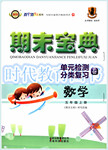题目内容
【题目】阅读理解
You may think, salt is just a simple cooking element we shake on our food for a little extra taste. But salt is much more than that. Without salt our muscles would not move. Our nervous systems would not operate. Our hearts would not beat.
But do not think rubbing salt into a wound will help. Doing that would be painful and not heal the wound. “To rub salt into a wound” is an idiom that means to purposefully make a bad situation worse.
Early humans got the salt they needed to stay alive from the animals they killed. But advances in agriculture led to a diet low in salt. So, humans needed to find other sources. Those who lived near the ocean or other natural sources for salt were lucky. Those who did not had to trade for salt. In fact, people used salt as a method of payment in many parts of the ancient world. The word “salary” comes from the word “salt”.
Salt also played an important part in population movement and world exploration. Explorers understood that if they could keep food fresh, they could travel longer distances. So they used salt to preserve food and explore the world.
Salt was so important that, according to food historians, it was traded pound-for-pound for gold. Today, people still use the expressions “worth one's salt” or “worth one's weight in salt”. The expressions describe a person of value.
A person might also be called “salt of the earth”. That description means he or she is dependable and trustworthy. However, when you say “I think we should take what he said with a grain of salt”you mean you accept it but maintain a degree of doubt about its truth.
(1)What can we learn from the first paragraph?
A.Salt plays an important part in our life.
B.Salt makes food tasty.
C.Salt is considered to be part of our muscles.
D.Salt is sure to damage nervous systems.
(2)A beggar's bread was stolen last night, which means_________.
A.salt of the earth
B.rubbing salt in a wound
C.a diet low in salt
D.worth his salt
(3)If you describe a person as a great help, you mean_________ .
A.he rubs salt in a wound
B.he is often taken as a grain of salt
C.he often uses salt to preserve meat
D.he is worth his weight in salt
(4)Which of the following is the best title for the passage?
A.Salt Is More Than a Four-letter Word.
B.Salt Is a Basic Element in Cooking.
C.Salt Is a Word with a Long History.
D.Salt Is Popular with Different People.
【答案】
(1)A
(2)B
(3)D
(4)A
【解析】本文主要介绍了盐的重要作用及许多与盐有关的词汇表达。
(1)推理判断题。通读第一段可知,本段讲述盐不仅是一种调味品,而且盐对于我们的肌肉、神经系统和心脏起着决定性作用,盐意味着生命。所以答案是A。
(2)推理判断题。“乞丐的面包昨天晚上被偷了”意味着原本一贫如洗的人连最基本的赖以生存的食物都没有了,这犹如伤口上撒盐,让情况变得更加糟糕。所以答案是B。
(3)推理判断题。根据倒数第二段中的句子“Today, people still use the expressions “worth one's salt” or “worth one's weight in salt”. The expressions describe a person of value.”可知,盐是如此重要,今天人们仍旧使用“worth one's salt” 或者 “worth one's weight in salt”来描述那些重要人物。所以答案是D。
(4)标题判断题。纵观全文可知,文章主要讲述了与“salt”有关的习语表达,盐在人们的生活中是至关重要的,因此也衍生出许多与盐有关的日常表达。因此推断A“盐不仅仅是一个四个字母的单词”为最佳标题。所以答案是A。

 期末宝典单元检测分类复习卷系列答案
期末宝典单元检测分类复习卷系列答案